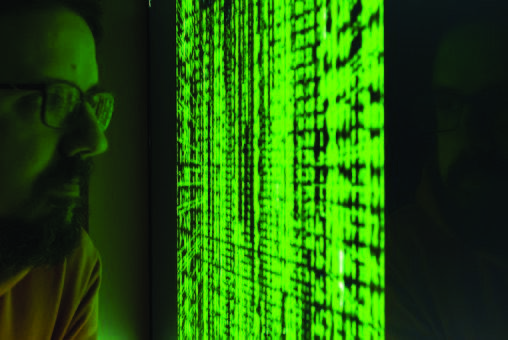
The orthodox scientific view that has ruled out the existence of UFOs is coming into question—raising new dilemmas and prospects for the relationship between science and religion, writes University of Chicago anthropologist Hussein Ali Agrama in the science and religion journal Zygon (December). In the last few years, there have been a series of disclosures of military programs and research involving UFOs that claim encounters with these alleged phenomena. In 2019, the U.S. Navy also announced that it would revise its guidelines for reporting anomalous. aerial sightings by its personnel in order to “destigmatize them.” Although receiving less media attention due to the momentous events of last year, the push to legitimize UFOs has now become a multi-platform operation, made up of former intelligence officials, scientists, and celebrities. such as musician Tom DeLonge, through the newly founded To the Stars Academy of Arts and Science (TTSA). The group was instrumental in the release of a secretive Pentagon study on UFO research activity. Agrama, who remains a skeptic of UFO claims, writes that the findings of such studies include more than just vague sightings of shiny far-off objects in the sky; rather, the accounts are based on sophisticated military sensors from various vantage points observing fastmoving objects capable of rapid acceleration and able to perform “maneuvers at aerodynamically impossible angles.”
Some of these reports include the more familiar sensationalized accounts of poltergeist-like beings and human and animal injuries, leading a segment of UFO researchers to search for biological evidence of these phenomena rather than relying on traditional eyewitness accounts. Shortly after the Navy announcement, Agrama attended a conference that for almost the first time brought together researchers from academia, government, and industry to openly develop methodologies appropriate to study UFOs. He writes that although only a few of these scientists believe that these UFO incidents point to extraterrestrial life, “there is now a growing consensus among researchers throughout academia, industry, and government that the UFO phenomenon represents something anomalous that cannot be dismissed as a simple mistake of perception or explained (away) by conventional means, and that therefore merits the kind of investigation that only combined resources would allow.” Just as these findings may bring about a shift in our understanding of contemporary physics and its limits, they may increasingly challenge assumptions about religion and secularism, Agrama writes. One ethnographic study by Diana Pasulka recounts how NASA engineers have looked into the esoteric practices and powers of saints and psychics to understand UFO technologies. Such developments seem to straddle the line between science and religion, while not falling into either category, with their “uncanniness stretching us to our limits” in a secular age, Agrama writes. He concludes that the growing acceptance of UFOs may not represent a new set of religious beliefs as much as a “new paradigm of religiosity, rooted partly in incontrovertible technological evidence.”
(Zygon, http://www.zygonjournal.org/)

Source: Pixabay.